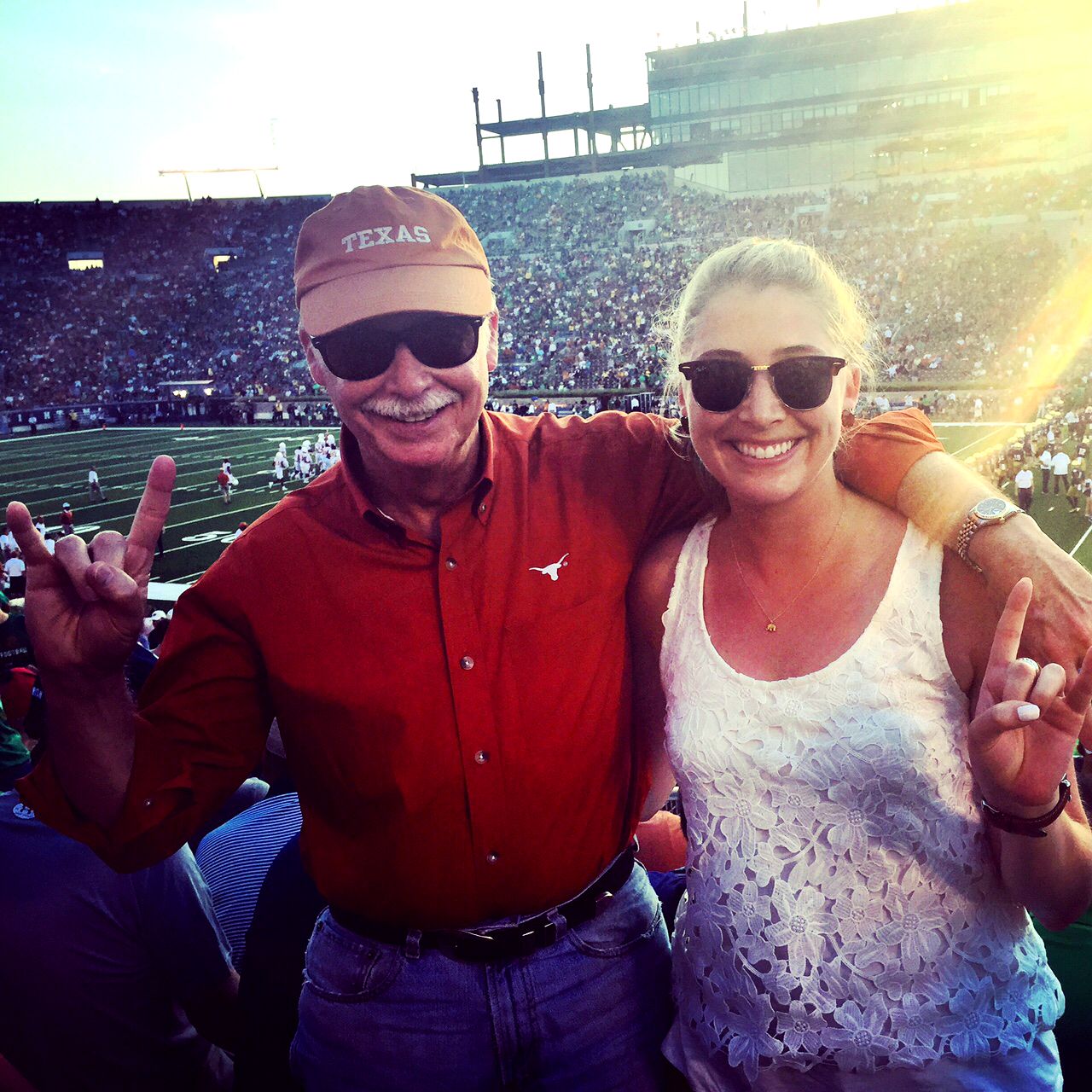
Play Like a Champion
Published in EventThis past weekend, my daughter Jordan and I traveled to South Bend for the Texas – Notre Dame football game.
We’ve had this date circled on our calendar for more than two years. The photo of us was taken before the game started, which was the last time the score was tied. The Longhorns lost to the Fighting Irish in embarrassing fashion, 38 – 3.
I’d heard for years about the term, “Play like a champion today,” and have always associated it with Notre Dame.
Turns out, the phrase was first used nearly 75 years ago by Oklahoma football coach Bud Wilkinson.
Back in the late 1940s, the great Oklahoma Sooners coach had a sign made and posted above the locker room door that the players touched on their way through the tunnel that leads to the field. The tradition continues today, and a portable version of the sign has been created and travels with the team on road games.
In 1986, Notre Dame football coach Lou Holtz discovered a photo in a Notre Dame book with the same phrase and asked around about its origins. While no one could remember the origin, Holtz considered the phrase a powerful motivational tool and added it to the other great Notre Dame game day traditions.
Regardless of the origin of the phrase, whether on the field or in the workplace, we are reminded that everyone must give their best if the team expects to win.
To be champions, however, even more is required. In the words of legendary Notre Dame player and coach Knute Rockne, “The secret is to work less as individuals and more as a team. As a coach, I play not my eleven best, but my best eleven.”
It’s the leader’s job as coach to bring out a person’s best capability and then put them in a position to win.
What steps are you taking to help your colleagues play like a champion?
Ready to reset?
Attend my free Accountability webinar: I Did It! to set and achieve your 2021 goals.
- February 17th from 11 AM – 12:30 PM Central Time
- My free webinar will help you:
– Sharpen your personal goals
– Improve time management
– Tackle tough work-related issues
– Support remote workers
Learn More
To dive even deeper into the topic of accountability, I invite you to purchase a copy of my bestselling book, “Accountability: The Key to Driving a High-Performance Culture.”
Become a better leader.
Download my three free e-books.
Free Tips
Sign up to receive free tips on business, leadership, and life.
Get My Latest Book
HOW LEADERS DECIDE
History has much to offer today’s current and aspiring leaders.
Business schools teach case studies. Hollywood blockbusters are inspired by true events.
Exceptional leaders are students of history. Decision-making comes with the territory.



